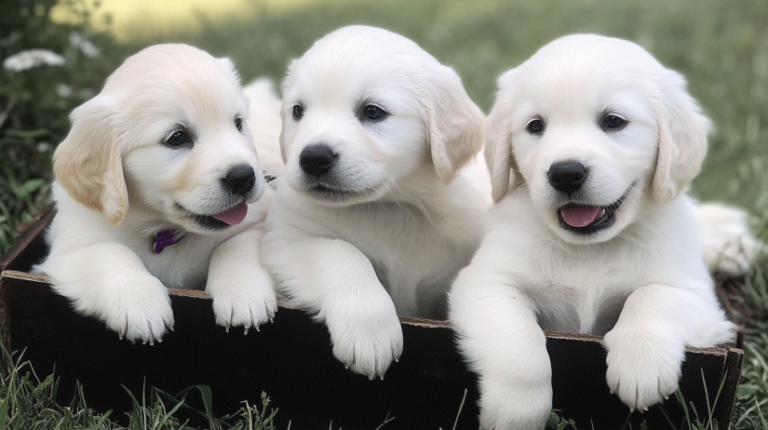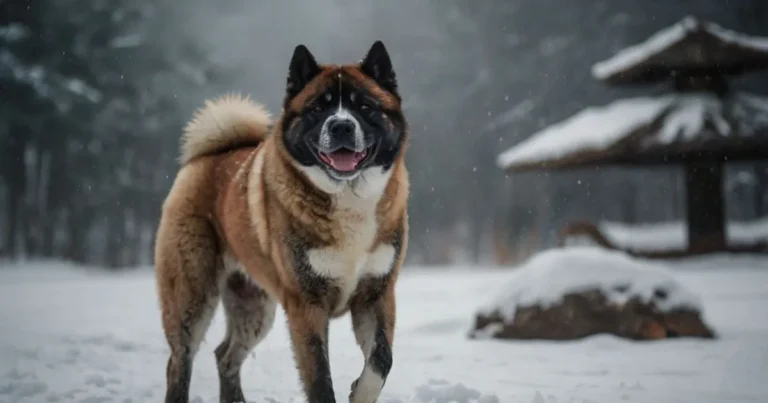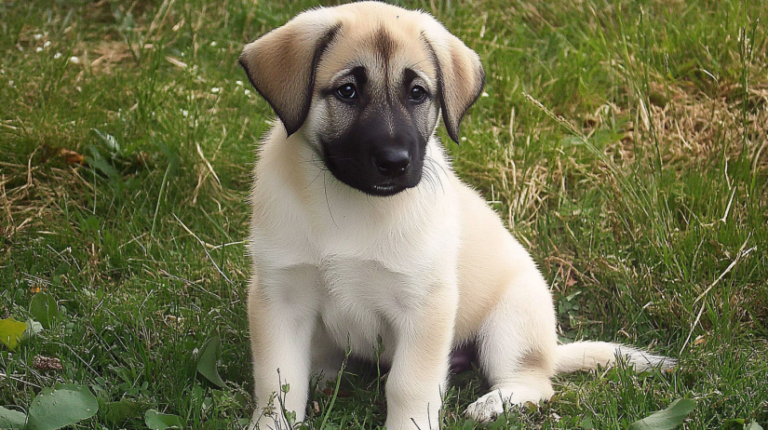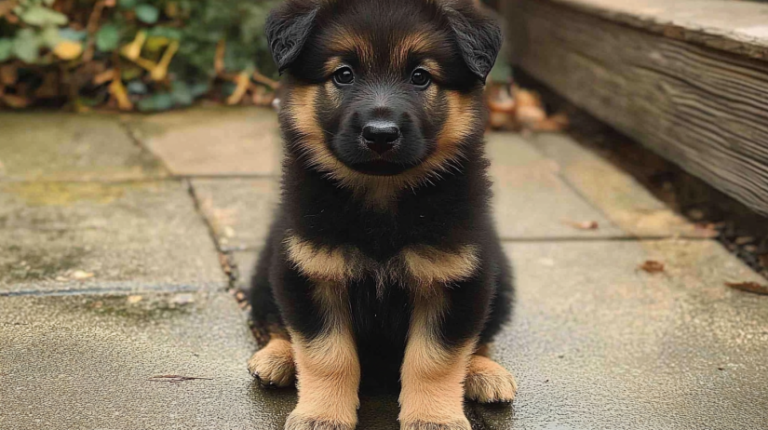When do newborn puppies open their eyes? Key milestones explained
Welcoming a new furry companion into your life is both exciting and fulfilling. As a puppy parent, you’ll see your pup grow through important stages. This includes when they open their eyes. Knowing these milestones helps you care for your growing companion better. This article will tell you when newborn puppies usually open their eyes and cover other key puppy development phases.
Table of Contents
Understanding Puppy Development Stages
As your new furry friend grows, they’ll go through many exciting developmental stages. From their first neonatal period to the adventurous transitional phase, each stage shows the amazing change of puppy development by week. Let’s look at these key milestones and find out when puppies start walking and opening their eyes.

Neonatal Period (0-2 Weeks)
In the first two weeks, newborn puppies rely fully on their mother. They start to develop their senses, like touch, temperature, and hearing. Even though their eyes are closed, they begin to smell and taste, helping them find their mother’s milk.
Transitional Period (2-4 Weeks)
Between 2 and 4 weeks, puppies start to explore their world. This is when puppies start walking and opening their eyes, becoming more independent. They become curious and start playing with their littermates, learning social skills.
It’s vital to give your puppy a caring environment and watch their growth closely. Knowing the stages of puppy development by week helps ensure your puppy gets the care they need to grow well.
When do newborn puppies open their eyes?
As new parents, one of the most exciting moments is when your puppy opens their eyes for the first time. This journey starts from the moment they are born.

Typically, newborn puppies are born with their eyes closed. It usually takes about 2 weeks for them to open their eyes fully. But, some puppies might need up to 3 weeks.
The process of a puppy’s eyes opening is slow. In the first week, you might see their eyes start to open a bit. But they will still be mostly closed. By the end of the second week, most puppies will have their eyes fully open and ready to explore.
“Watching your puppy’s eyes open for the first time is an unforgettable moment, as they begin to observe and interact with their surroundings.”
The age when a puppy opens their eyes can vary. It depends on the breed and the puppy itself. Larger breeds, like Great Danes, might take longer than smaller breeds, like Chihuahuas.
- What age do puppies open their eyes? Typically, between 2-3 weeks of age.
- How long till a puppy opens its eyes? Most puppies will have their eyes fully open by the end of the second week of life.
As your puppy’s eyes open, you’ll see their curiosity and wonder. This time is critical for their proper development. They start to explore and interact with their littermates and caregivers.
Puppy Milestones: Walking and Exploring
Puppies grow up fast, hitting exciting milestones like their first steps and exploring. This time is key for their growth and learning.
First Steps and Coordination
Between 2 and 4 weeks old, puppies usually start to walk. At first, they might not be steady. But as they get stronger, they become more confident.
This is a big step for them to learn how to move and be on their own.
Developing Senses and Curiosity
As puppies’ senses get sharper, they become more curious. They start to check out their world, play with their siblings, and get to know their people. This curiosity shows they’re learning and growing.
| Milestone | Average Timeline |
| First steps | 2-4 weeks old |
| Improved coordination | 4-6 weeks old |
| Increased curiosity and exploration | 2-6 weeks old |
As puppies keep growing, these early steps and explorations are important. They help them become independent and social. Watching and helping them through these stages is crucial for their health and happiness.
Socialization and Bonding with Puppies
Raising a well-adjusted puppy is all about their early weeks. Socialization and bonding are key to their behavior and personality. Knowing this can help your puppy thrive.
In the first weeks, puppies need to meet new people, animals, and places. This early exposure makes them confident and friendly.It aids them in adapting to their surroundings.
- Introduce your puppy to new sights, sounds, and textures in a calm, positive manner.
- Encourage interactions with family members, friends, and even other pets to help your puppy feel secure and comfortable.
- Gradually expose your puppy to new situations, such as going for walks or visiting pet-friendly businesses, to help them adapt to different stimuli.
Bonding with your puppy is also vital. Love, attention, and consistent training create a strong bond. Spend time playing, cuddling, and rewarding good behavior to deepen your connection.
| Activity | Benefits |
| Socialization | Helps puppies become confident, friendly, and well-adjusted |
| Bonding | Builds a strong foundation for a lifelong companionship |
Investing in your puppy’s early socialization and bonding is worth it. A nurturing environment helps them grow into a well-rounded, loving pet.
Ensuring Proper Puppy Nutrition and Care
As your puppy grows, it’s key to give them the right food and care. This helps them grow healthy and happy. You need to watch their diet and make sure they see the vet regularly.
Feeding Guidelines for Growing Puppies
Puppies need special food as they get bigger. Your vet will tell you how much and what kind of food they need. Puppies eat more calories and protein than adult dogs.
- Feed your puppy a high-quality, age-appropriate puppy food to support their rapid growth and development.
- Adjust the portion sizes as your puppy grows to meet their changing needs.
- Always ensure fresh water is available and keep an eye on your puppy’s hydration.
Veterinary Checkups and Vaccinations
Regular vet visits and shots are vital for your puppy’s health. Your vet will make a plan to keep your puppy healthy and strong.
- Schedule routine wellness exams to monitor your puppy’s growth, weight, and overall health.
- Administer all required vaccinations according to your veterinarian’s recommended schedule.
- Discuss any concerns or questions you have about your puppy’s development and care with your veterinarian.
| Puppy Age | Recommended Veterinary Visits | Typical Vaccinations |
| 6-8 weeks | First wellness exam | Distemper, Parvovirus, Coronavirus |
| 10-12 weeks | Second wellness exam | Distemper, Parvovirus, Coronavirus |
| 14-16 weeks | Third wellness exam | Distemper, Parvovirus, Coronavirus, Rabies |
| 1 year | Annual wellness exam | Distemper, Parvovirus, Coronavirus, Rabies |
By following these tips and talking to your vet, you can help your puppy grow well. They’ll get the right food and care to be happy and healthy.
Conclusion
Watching your puppy grow from birth to adulthood is amazing. Knowing when they open their eyes helps you care for them better. As they grow, they start to walk and explore with curiosity and confidence.
Being informed and proactive is key for your puppy’s health and happiness. Knowing about their eye opening and nutritional needs is important. This knowledge helps you support their growth into a loving family member.
Keep a close eye on your puppy’s progress and give them love and care. This way, you’ll have a lifelong friend. Enjoy every moment as your puppy becomes a happy, healthy dog.
FAQ
When do newborn puppies open their eyes?
Newborn puppies are born with their eyes closed. By 2 weeks of age, most puppies typically have their eyes open. Puppies often take their first steps between 2 and 4 weeks of age. Some may require as long as 3 weeks.
How long does it take for a puppy to open its eyes?
At around 2 weeks old, most puppies have their eyes open. Some might need up to 3 weeks.
What age do puppies open their eyes?
Newborn puppies open their eyes over the first few weeks. Most have them open by 2 weeks old.
When do puppies start walking and opening their eyes?
Puppies start walking and exploring around 2 to 4 weeks old. They usually have their eyes open by 2 weeks.
What are the key developmental stages for puppies?
Puppy development has several stages: – Neonatal Period (0-2 Weeks): Puppies rely on their mother and start sensing their world. – Transitional Period (2-4 Weeks): Puppies start exploring and becoming more independent.







